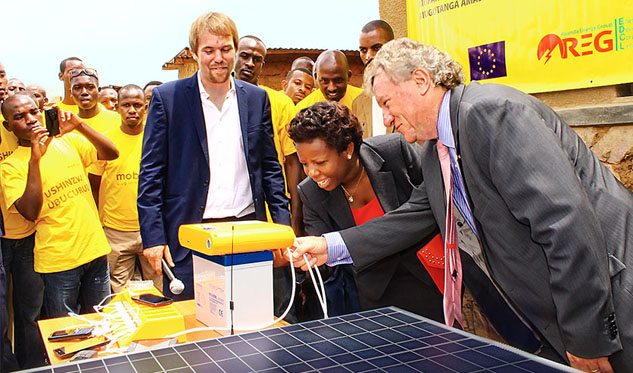Share this
NAIROBI, KENYA: More people are awakening to the fact that powering, heating and cooling homes and offices using conventional energy is very expensive. This realisation has seen renewable energy gain a lot of popularity. The world is also gearing towards ensuring access to affordable, reliable, sustainable and modern energy for all. Solar power is one type of renewable energy that has received a lot reception.
The International Energy Agency predicts that by 2050, solar energy will be the number one producer of electricity in the world. For instance, in the US, every three minutes, someone switches to solar energy. Closer home, Uganda commissioned a 10 MW solar project. The $19 million (1.9 billion) consists of more than 32,680 PV panels and will provide power to more than 40,000households in rural Eastern Uganda.
Locally, the reception rate may not be that high but the transition is being witnessed too. Individuals, big firms, developers and institutions are having enough of the soaring energy prices and switching to solar power. Many companies are now taking advantage of the country’s favorable sunny climate to set up businesses, UK firm Solar century, Green Energy Africa, Mobisol and Green millenia Energy Limited are among the interested few companies who have set base in Kenya. Mobisol which is a leading provider of smart solar home solutions, celebrated reaching out to 200,000 beneficiaries in East Africa and recently step up its footprint in the region with entry into Kenya. On March 14, the German company launched its first ever store in Kisumu with the area governor Jack Ranguma terming the event a success of public-private partnerships, which benefit the community as a whole.
He urged the public to consider solar energy to help save on energy related expenditure for an improved lifestyle.
“The biggest household expenditure of rural communities is kerosene. Additionally, with the growth of the real estate market in the country, I would like to urge contractors to consider installing solar panels, which are a clean, safe and renewable energy source. This will not only help communities save on energy, but the diverse products create a source of income. For example, Kisumu fans of football can
now enjoy watching matches on Mobisol’s large solar powered television, while charging their phones,” said Ranguma.
Speaking at the same event Mobisol’s East Africa’s CEO Henrik noted that rural communities in Kenya continue to use unreliable fossil fuels like kerosene, which are not only harmful to the environment and people’s health but are also costly to maintain.
Through Mobisol’s top-notch innovative technology, off-grid households in Kenya can finally afford solar systems that are of high quality and powerful enough to meet their entire household and business needs. Kenyans can now enjoy a modern, comfortable lifestyle, improve their economic well-being and at the same time set new standards for worldwide sustainability,” said Axelsson. It is the significant gap in the number of Kenyans connected to the national grid that has seen a number of solar companies look into Kenya and the entire region as potential for their businesses. According to statistics, more than 70 percent of Kenya’s population does not have access to electricity.
Learning institutions such as Strathmore University have entered into the solar trap with panels that have a capacity of 0.6MW. It signed a power purchase agreement with Kenya Power heralding the commercialization of solar power in Kenya. In the new 20-year power purchase agreement (PPA), Strathmore will charge Kenya Power Sh12.36 ($0.12) per unit of solar electricity delivered to the national grid. The deal marks the first solar energy injection into the national grid network in Kenya. Strathmore has installed solar panels with the capacity to produce 0.6 megawatts, of which 0.25 megawatts will be sold to Kenya power, while the rest is used to light up the institution.
Another remarkable solar project is the Garden City carport. A carport is a wall-less shelter for cars consisting of a roof supported on posts. Solar carports are increasing gaining popularity worldwide because they make use of otherwise functionless rooftops. The Garden City solar carport has over 3,300 solar panels that generate 1.26 MW per year. The project was done by Solar century, a London-based solar firm. It provides clean power to all the retail tenants of the shopping mall.





